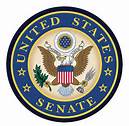 SENATE News:
SENATE News:WASHINGTON ― U.S. Senators Tom Udall and Martin Heinrich highlighted several provisions that support Tribes, Native students and schools serving Native students in the Every Student Succeeds Act (ESSA), which the president signed into law last week.
Udall and Heinrich both worked to include several bipartisan reforms supporting Native students in the bill, which overhauls the nation’s controversial No Child Left Behind education law.
Provisions the senators pushed for in the new law emphasize the importance of teaching Native languages; address serious issues faced by Indian Country, such as suicide prevention and domestic abuse; and are designed to help close achievement gaps in Tribal communities.
ESSA will improve programs for Native students by facilitating greater self-governance and more Tribal consultation and ensuring that Tribes are involved in designing education programs that will best serve their communities.
The new law also provides critical funding to school districts that primarily serve Tribal communities and makes updates to strengthen the relationship between states and Tribes.
Importantly, ESSA updates the Impact Aid program so schools in Tribal communities will receive funds faster and will be more financially secure from year to year.
Impact Aid compensates school districts for educating students who live on federal lands — such as military bases and Indian reservations — where many residents are exempt from local property taxes that traditionally would fund these school districts.
ESSA also establishes a reasonable “hold harmless” provision to prevent districts from experiencing a dramatic funding cut due to base realignments, school consolidations or other unexpected enrollment drops.
“This new law makes critical updates that will strengthen Tribal schools and empower Native American communities to take control of their students’ education,” Udall said. “I’m proud that the Every Student Succeeds Act includes provisions I’ve championed to remove barriers that sometimes prevent Tribal leaders from teaching Native languages, which are crucial to maintaining their rich cultural identities for generations to come. The law will also require federal officials to take a hard look at efforts to address suicides among Native students so we can do more to prevent these tragedies. Tribal schools in New Mexico and across the country face many unique challenges, and this long overdue reform is a step forward that will help more students get the high-quality education they deserve.”
“The Every Student Succeeds Act makes significant improvements to Tribal education,” Heinrich said. “I’ve seen firsthand how Native students thrive with an education that focuses on their own traditions, particularly the preservation of Native languages, which is integral to maintaining cultural identity. And this new law helps achieve that. Instruction in Native languages promotes creativity, reduces the achievement gap, boosts high school graduation rates and college enrollment, and yields long-term benefits outside the classroom. I’m also pleased that this law includes provisions to support our Tribal communities that are combating domestic abuse and addressing suicide. When we provide Indian Country and Tribal students the opportunities and resources they need to get ahead everybody wins.”
Specific provisions in the new law will help Native students succeed by:
- Requiring local and state education agencies to consult and partner with Tribes on policies impacting Native students;
- Strengthening programs to improve academic achievement of Native students;
- Supporting schools that primarily instruct in Native languages to promote the revitalization and maintenance of Native American languages, which both senators have long supported as part of Udall’s Building Upon Unique Indian Learning and Development (BUILD) Act;
- Allowing funds to be used for violence, abuse, and suicide prevention activities, culturally related activities, and family literacy programs;
- Requiring the Department of the Interior and the Department of Health and Human Services to report on efforts to address suicides among K-12 students in Indian Country;
- Establishing and operating family engagement centers;
- Expanding eligibility for Tribal schools to access funds for school leadership recruitment, arts programs and gifted programs; and
- Preserving education programs to train teachers, and offer fellowships for Native students who want to become teachers.

